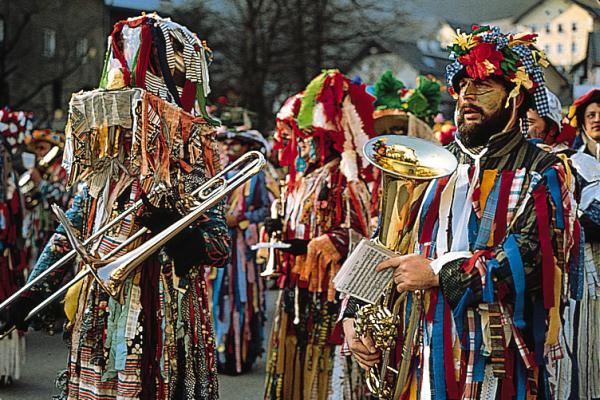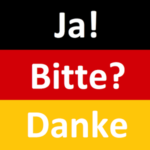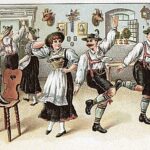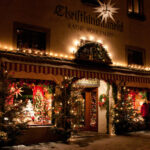
Germany, a land steeped in history and brimming with cultural diversity, offers a treasure trove of traditions that captivate locals and visitors alike. From globally renowned festivals like Oktoberfest to cherished family customs that span generations, German traditions showcase a vibrant cultural identity. In this article, we delve into the fascinating world of German traditions, exploring the festivals, customs, and practices that continue to shape German life today.
The Importance of German Traditions
Germany’s traditions are a reflection of its rich historical tapestry and regional diversity. Influenced by historical events such as the Holy Roman Empire, the Reformation, and reunification, these customs vary widely across the country. From Bavaria’s lively folk festivals to the Rhineland’s colorful parades, each region boasts its unique identity.
Traditions in Germany not only preserve the cultural essence of the past but also bring communities together. Celebrations like Karneval and Christmas markets foster a sense of togetherness, while everyday customs emphasize values such as punctuality, respect, and a connection to family. These practices offer an authentic glimpse into Germany’s way of life, making them an integral part of the nation’s identity.
Major German Festivals and Celebrations
1. Oktoberfest – The World’s Largest Beer Festival
One cannot talk about German traditions without mentioning Oktoberfest. This world-famous festival, held annually in Munich, began in 1810 to celebrate the marriage of Crown Prince Ludwig and Princess Therese. Today, it attracts millions of visitors who come to experience its lively atmosphere.
Dressed in traditional Bavarian attire—Lederhosen for men and Dirndls for women—attendees enjoy giant steins of beer, hearty German dishes such as Bratwurst and Pretzels, and folk music. With parades, amusement rides, and cultural performances, Oktoberfest is a celebration that encapsulates Bavarian charm and hospitality.
Learn more about Oktoberfest traditions and history.
2. Christmas Traditions in Germany
Germany’s Christmas traditions are among the most magical in the world. The country is renowned for its Christmas markets (Weihnachtsmärkte), which date back to the 14th century. These festive markets, held in cities like Nuremberg, Dresden, and Cologne, are a sensory delight, offering handcrafted gifts, seasonal foods, and Glühwein (mulled wine).
Another cherished tradition is the Advent calendar, which builds anticipation for Christmas Day. Families also celebrate St. Nicholas Day (Nikolaustag) on December 6th, when children wake up to find their shoes filled with sweets and small gifts.
Discover the magic of German Christmas traditions.
3. Karneval (Fasching) – The Fifth Season
Known as Karneval, Fasching, or Fastnacht, this vibrant pre-Lenten festival is celebrated with great enthusiasm in regions like Cologne, Mainz, and Düsseldorf. Beginning on November 11th at 11:11 AM, Karneval features extravagant parades, colorful costumes, and lively street parties.
Participants don elaborate masks and costumes to embrace the spirit of mischief and fun. Floats in the parades often satirize political and social topics, adding a humorous touch to the festivities. Traditional sweets like Berliner (jelly-filled doughnuts) and local music create an atmosphere of pure joy.
Dive into the colorful world of Fasching – Carnival in Germany.
Traditional German Customs
German customs emphasize respect, discipline, and family values. For instance, punctuality is a hallmark of German culture, with lateness often considered impolite. Greetings are formal, with a firm handshake and direct eye contact being the norm.
Family traditions are also cherished. Sundays are often reserved for family gatherings, with shared meals and leisure activities. Traditional attire, such as the Dirndl and Lederhosen, continues to be worn during cultural events and folk festivals, particularly in southern Germany.
Read more about Public Etiquette in Germany.
German Food Traditions
Germany’s culinary traditions are as diverse as its regions. Food plays a central role in festivals and family gatherings, offering a delicious insight into German heritage. Some popular dishes include:
- Bratwurst: Grilled sausages served with mustard and sauerkraut.
- Pretzels (Brezn): Soft, twisted bread with a crispy crust.
- Sauerkraut: Fermented cabbage, a staple side dish.
- Schnitzel: Breaded and fried meat cutlets, typically served with potato salad.
During Christmas, festive treats like Stollen (fruit bread) and Lebkuchen (gingerbread) are enjoyed, while Oktoberfest features hearty dishes like Roast Pork.
Explore authentic German Recipes here.
Modern Influences on German Culture
In today’s globalized world, Germany has successfully blended its traditional customs with modern influences. Cities like Berlin and Hamburg showcase a dynamic cultural scene where heritage and innovation coexist. Younger generations are finding creative ways to preserve traditions while adapting them to contemporary lifestyles.
Sustainability has also become an integral part of German festivals, with eco-friendly initiatives gaining popularity. Germany’s multicultural population further enriches its cultural tapestry, introducing new customs and cuisines into the mix.
German traditions are a testament to the country’s rich cultural history and vibrant present. From the spirited parades of Karneval to the cozy charm of Christmas markets, these customs offer a unique glimpse into the German way of life. Whether you’re exploring festive celebrations or savoring traditional dishes, Germany’s traditions provide endless opportunities to connect with its heritage.
Curious to learn more about Germany’s vibrant cultural scene?
Browse through our articles on German history, cuisine, and festivals to deepen your knowledge of this fascinating country!
Related Articles:
Lederhosen & Dirndls: The History of Traditional German Clothing
The Rich Tapestry of German Traditions
A Glimpse from the Past: Traditional Bavarian Clothing
Traditional German Clothing – Dirndl and Lederhosen
The Strange and Strict Rules of German Sauna Culture







